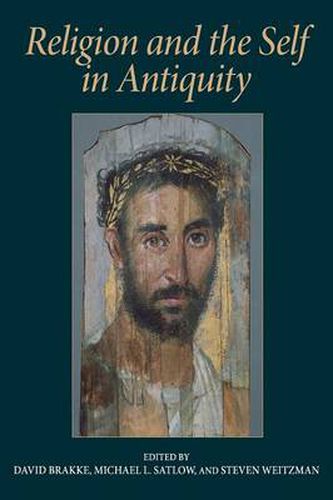Readings Newsletter
Become a Readings Member to make your shopping experience even easier.
Sign in or sign up for free!
You’re not far away from qualifying for FREE standard shipping within Australia
You’ve qualified for FREE standard shipping within Australia
The cart is loading…






This title is printed to order. This book may have been self-published. If so, we cannot guarantee the quality of the content. In the main most books will have gone through the editing process however some may not. We therefore suggest that you be aware of this before ordering this book. If in doubt check either the author or publisher’s details as we are unable to accept any returns unless they are faulty. Please contact us if you have any questions.
Many recent studies have argued that the self is a modern invention, a concept developed in the last three centuries. Religion and the Self in Antiquity challenges that idea by presenting a series of studies that explore the origins, formation, and limits of the self within the religions of the ancient Mediterranean world. Drawing on recent work on the body, gender, sexuality, the anthropology of the senses, and power, contributors make a strong case that the history of the self does indeed begin in antiquity, developing as Western religion itself developed. David Brakke is Professor of Religious Studies and Adjunct Professor of History at Indiana University. He is the author of Athanasius and Asceticism and co-editor of Reading in Christian Communities: Essays on Interpretation in the Early Church. He serves as co-editor of the Journal of Early Christian Studies. Michael Satlow is an Associate Professor in the Program in Judaic Studies and the Department of Religious Studies at Brown University, and specializes in the study of early Judaism. He has written extensively on issues of Jewish marriage and sexuality in antiquity, the Dead Sea scrolls, and Jewish history and theology.Steven Weitzman is the Irving M. Glazer Chair in Jewish Studies and Director of the Robert A. and Sandra S. Borns Jewish Studies Program at Indiana University. He is the author of Song and Story in Biblical Narrative, Surviving Sacrilege: Cultural Persistence in Jewish Antiquity (forthcoming from Harvard University Press in 2005), and has written articles published in the Journal of Religion, the Journal of the American Oriental Society, the Harvard Theological Review, and the Journal of Biblical Literature. He is also Associate Director of the Tel Beth Shemesh excavations.
$9.00 standard shipping within Australia
FREE standard shipping within Australia for orders over $100.00
Express & International shipping calculated at checkout
This title is printed to order. This book may have been self-published. If so, we cannot guarantee the quality of the content. In the main most books will have gone through the editing process however some may not. We therefore suggest that you be aware of this before ordering this book. If in doubt check either the author or publisher’s details as we are unable to accept any returns unless they are faulty. Please contact us if you have any questions.
Many recent studies have argued that the self is a modern invention, a concept developed in the last three centuries. Religion and the Self in Antiquity challenges that idea by presenting a series of studies that explore the origins, formation, and limits of the self within the religions of the ancient Mediterranean world. Drawing on recent work on the body, gender, sexuality, the anthropology of the senses, and power, contributors make a strong case that the history of the self does indeed begin in antiquity, developing as Western religion itself developed. David Brakke is Professor of Religious Studies and Adjunct Professor of History at Indiana University. He is the author of Athanasius and Asceticism and co-editor of Reading in Christian Communities: Essays on Interpretation in the Early Church. He serves as co-editor of the Journal of Early Christian Studies. Michael Satlow is an Associate Professor in the Program in Judaic Studies and the Department of Religious Studies at Brown University, and specializes in the study of early Judaism. He has written extensively on issues of Jewish marriage and sexuality in antiquity, the Dead Sea scrolls, and Jewish history and theology.Steven Weitzman is the Irving M. Glazer Chair in Jewish Studies and Director of the Robert A. and Sandra S. Borns Jewish Studies Program at Indiana University. He is the author of Song and Story in Biblical Narrative, Surviving Sacrilege: Cultural Persistence in Jewish Antiquity (forthcoming from Harvard University Press in 2005), and has written articles published in the Journal of Religion, the Journal of the American Oriental Society, the Harvard Theological Review, and the Journal of Biblical Literature. He is also Associate Director of the Tel Beth Shemesh excavations.